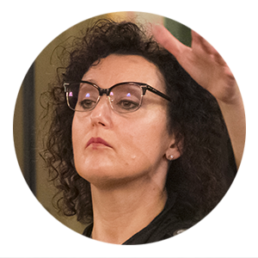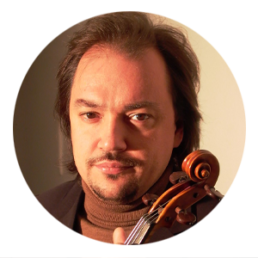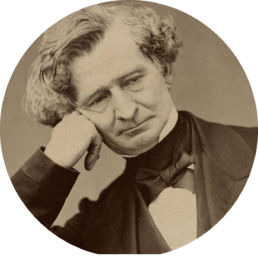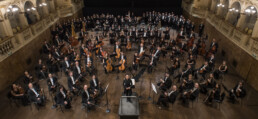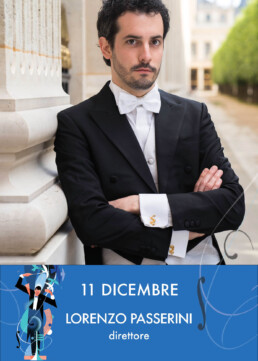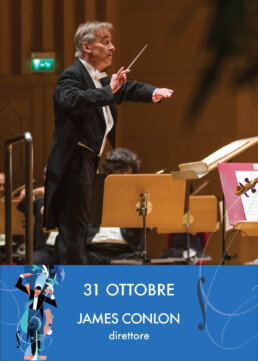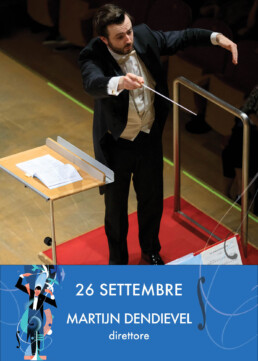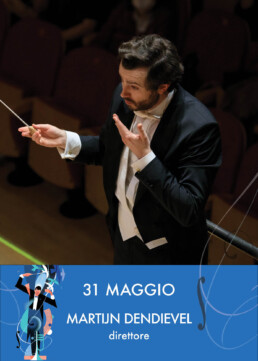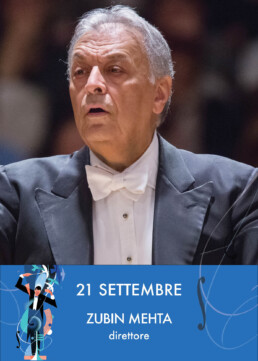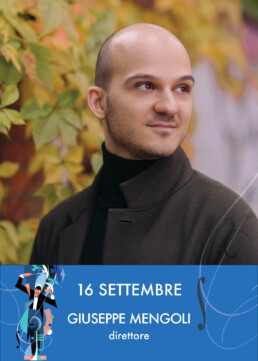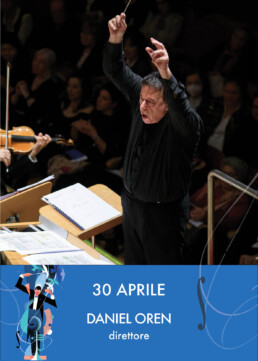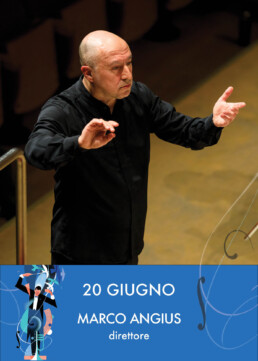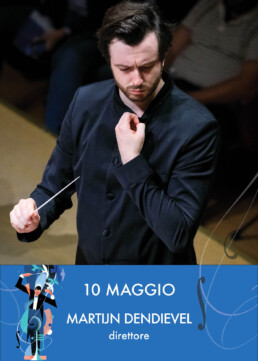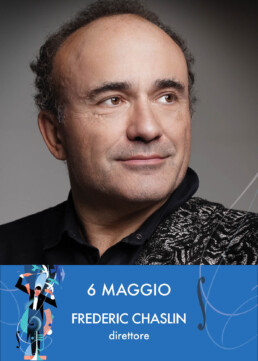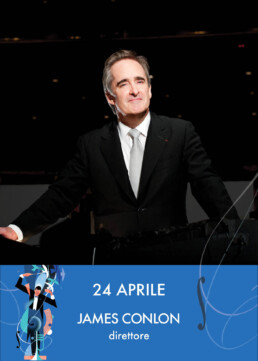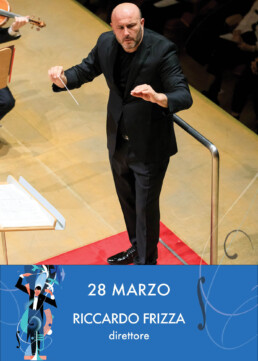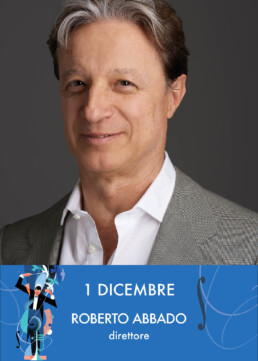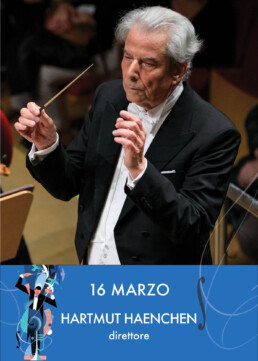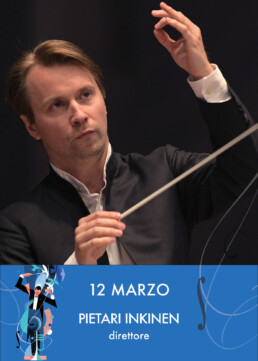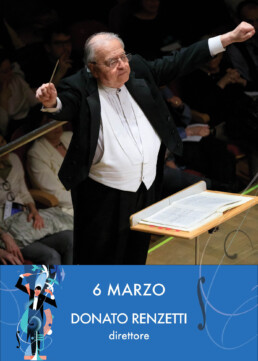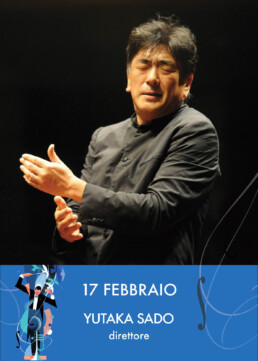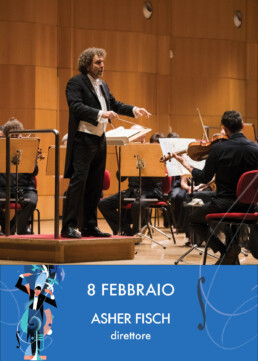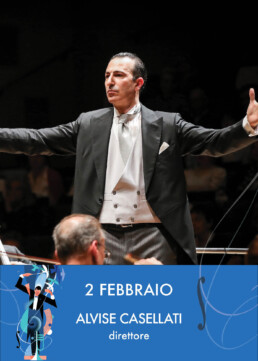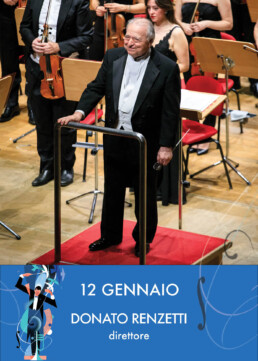SYMPHONIC SEASON 2025
Frédéric Chaslin director
Sergei Krylov violin
Julie Cherrier-Hoffmann soprano
Gea Garatti Ansini Choirmaster
BRAHMS | POULENC
PROGRAM
PROGRAM
Johannes Brahms
Concerto for Violin and Orchestra in D major, op. 77
The monumental breadth with which Brahms’s only Violin Concerto opens immediately certifies the greatness of the undertaking, shaped on a model from Beethoven to Schumann, via Mendelssohn, to the rustic, almost Gypsy-like third movement. The Concerto’s guardian angel was Joseph Joachim, one of the most extraordinary virtuosos of the nineteenth century. It was to him that Brahms deferentially submitted the score, inviting him to make any necessary corrections. And as proof of the trust placed in the great violinist, Brahms entrusted him with the entire cadenza of the first movement, a fact more unique than rare in the history of the concerto for solo instrument in the nineteenth century.
PROGRAM
Francis Poulenc
“Fiançailles pour rire” (Orchestra. F. Chaslin).
Author of more than 150 mélodies from 1919 to 1961, Poulenc left behind a series of masterpieces such as the cycle of six mélodies for voice and piano on poems from Louise de Vilmorin’s collection of the same name, which Frédéric Chaslin transcribed for orchestra. Composed in 1939, the series was first performed on May 21, 1942 at the Gaveau Hall by Geneviève Touraine and the composer on piano. The penultimate song, “Fleurs,” is dedicated to Solange d’Ayen, duchess of Ayen and fashion editor of the French edition of “Vogue.”
Gloria in G major for soprano, choir and orchestra
The sudden death of a close friend brought Francis Poulenc closer to the Catholic faith, which he never left, honoring it with a series of sacred compositions and with that operatic masterpiece that is 1957’s “Dialogues des Carmélites,” to which the Gloria is separated by only two years. And in fact Poulenc claimed that the idea for the Gloria was born while he was working on “Dialogues des Carmélites.” As Nicola Campogrande, composer-in-residence at the Teatro Comunale, noted, “it would be fair to say that Poulenc did not set the sacred text to music but used its sound, its rhythm, adding them to his own sonic palette,” even with irreverent strokes. “In writing,” the French composer confessed, “I thought of those frescoes by Bozzoli in which the angels stick out their tongues, and also of those serious Benedictine monks whom I caught playing ball one day.
PROGRAM
Overture, “Le Carnaval Romain”
In 1844 Hector Berlioz, among the great fathers of French Romanticism and one of the greatest innovators in the symphonic field, wrote a concert piece in A major with an extensive solo part reserved for the English horn. Thus was born the Overture “Le Carnaval romain,” a brilliant piece of broad melodic generosity, full of themes from the opera Benvenuto Cellini, composed six years earlier. The themes of the opera used, in fact, are those related to the Roman carnival scenes from which the overture takes its title.
“Prèlude à l’après-midi d’un faune.”
The notes are released like sensual exhalations in “Prélude a l’après-midi d’un faune” (1892-94) Claude Debussy’s first great symphonic masterpiece, which is immediately presented with its “new breath” (Pierre Boulez’s definition) thanks to the flute’s enigmatic opening phrase, “so full of voluptuousness as to become anguished,” Vladimir Jankélévitch’s words.
ORCHESTRA AND CHORUS OF THE MUNICIPAL THEATER OF BOLOGNA
ORCHESTRA AND CHORUS OF THE MUNICIPAL THEATER OF BOLOGNA
An orchestra of great tradition, Sergiu Celibidache, ZoltánPeskó, Vladimir Delman, Riccardo Chailly, Daniele Gatti, and Michele Mariotti have taken turns at its helm as music directors. Among the conductors who have led the ensemble are Gary Bertini, Myung-Whun Chung, James Conlon, Pinchas Steinberg, Valery Gergiev, Eliau Inbal, Vladimir Jurowskij, Daniel Oren, Peter Maag, Neville Marriner, Kurt Masur, Riccardo Muti, Mstislav Rostropovič, Esa Pekka Salonen, Georg Solti, Christian Thielemann, Charles Dutoit, Georges Prêtre. The Teatro Comunale Orchestra is frequently invited abroad (Holland, Romania, Spain, France and Switzerland) and has participated in prestigious festivals (Amsterdam 1987, Parma 1990, Wiesbaden 1994, Santander 2004 and 2008, Aix en Provence 2005, Savonlinna 2006, Macau 2013, Muscat 2015, Guanajuato in Mexico 2017, Paris 2018). A privileged relationship with Japan has resulted in several tours, most recently in June 2019 in Osaka, Tokyo, Yokohama, Fukuoka, with Rigoletto and Il barbiere di Siviglia.
Numerous record productions, including La Favorita diretta da Richard Bonynge, Oberto Conte di San Bonifacio diretto da Zoltán Peskó, Il barbiere di Siviglia diretto da Giuseppe Patané, La figlia del reggimento diretta da Bruno Campanella, Le maschere e La bohème dirette da Gianluigi Gelmetti, La scala di seta diretta da Gabriele Ferro, Macbeth, Manon Lescaut, Rigoletto, La cenerentola, Messa Solenne e le produzioni videografiche dei Vespri siciliani e di Giovanna d’Arco e Werther dirette da Riccardo Chailly, Armida diretta da Daniele Gatti, Simon Boccanegra e Attila diretti da Michele Mariotti .
The Orchestra, led by Mariotti, has recorded for Decca a CD of sacred arias with Juan Diego Flórez and for Sony an album of romantic arias with Nino Machaidze; for Deutsche Grammophon Le Comte Ory with Flórez and La Nuit de Mai, opera arias and songs by Leoncavallo, with Placido Domingo; and for the PENTATONE label a CD of Rossini overtures to celebrate 150 years since the composer’s death.In April 2021 the orchestra recorded for Deutsche Grammophon a forthcoming disc with tenor Benjamin Bernheim and Frédéric Chaslin on the podium.
Nel marzo 2013 i corpi artistici del Teatro Comunale di Bologna diretti da Mariotti sono stati protagonisti del concerto inaugurale del IV Festival internazionale Mstislav Rostropovich di Mosca eseguendo la Messa da Requiem di Verdi. Poi nell’ottobre del 2015 hanno inaugurato la rassegna Lingotto Musica presso l’Auditorium Giovanni Agnelli di Torino, dove hanno eseguito lo Stabat Mater, l’Ouverture e le Danze dal Guillaume Tell di Rossini. Inoltre, la nuova produzione della Bohème al Teatro Comunale, con la regia di Graham Vick e la direzione di Mariotti, ha vinto il Premio Abbiati come miglior spettacolo del 2018.
After thirty years of participation in the Rossini Opera Festival (from 1988 to 2016), 2017 marked a new collaboration between the Municipal Theatre of Bologna and the Verdi Festival of Parma which, among the various productions, saw the Orchestra engaged in the Stiffelio signed by Graham Vick. Staged at the Farnese Theatre, it achieved a great success with the public and critics by winning the Special Prize of the 37th “Franco Abbiati” Music Critics Award. In 2019 the Orchestra was the protagonist of the Verdi Festival in the Luisa Miller at the church of San Francesco del Prato in Parma and in the Aida at the Verdi Theatre in Busseto, while in 2020 of a symphonic concert conducted by Valerij Gergiev at the Teatro Regio in Parma. Since January 2022 the Musical Director of the Municipal Theatre of Bologna is Oksana Lyniv.
Among the most renowned choral ensembles on the international scene, the Chorus of the Teatro Comunale di Bologna has been conducted by Gaetano Riccitelli, Leone Magiera, Fulvio Fogliazza, Fulvio Angius, Piero Monti, Marcel Seminara, Paolo Vero, Lorenzo Fratini, Andrea Faidutti and Alberto Malazzi. As of September 2021, Gea Garatti Ansini took over as its director.
The choral ensemble has collaborated on various record productions, including several anthology releases with Luciano Pavarotti and June Anderson. It has made numerous appearances abroad, participating in the “Festival of Holland” in Amsterdam and the “Internationale Maifestspiele” in Wiesbaden, the BBC Proms at the Royal Albert Hall in London (Royal Philharmonic Orchestra and Daniele Gatti), the IV Mstislav Rostropovich International Festival in Moscow, several tours in Japan, the Savonlinna Opera festival and the Festival Internacional de Santander. In Italy the Chorus has collaborated with the Ravenna Festival under the direction of Riccardo Muti; it took part in a performance of Berlioz’s Te Deum at the PalaDozza in Bologna with Claudio Abbado on the podium; with Michele Mariotti it inaugurated the Lingotto Musica festival in Turin. Of note was his participation in the Rossini Opera Festival in Pesaro and the Verdi Festival in Parma, particularly for Stiffelio, a performance awarded the “Franco Abbiati” Special Prize.
Nothing found.
This post is also available in: Italiano (Italian)

